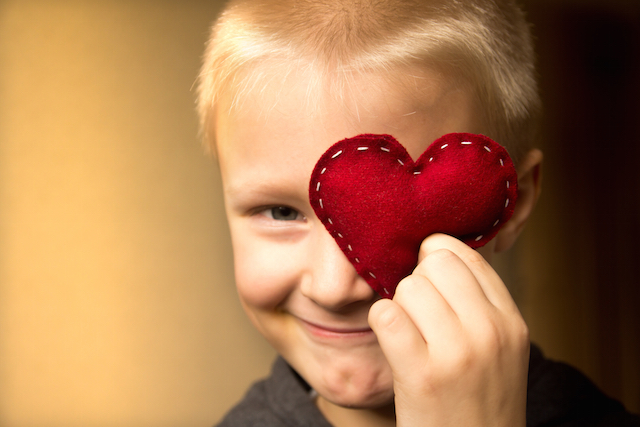
“Love isn’t everything. It’s the only thing.” ~Steven Hayes
Things go wrong in life. Distress and confusion can take root, sometimes leading to harsh self-criticism, depression, or anxiety.
We sense that love heals, and it does.
I once visited an orphanage for abandoned infants, and every toddler who I carried clung tightly to me. I can still feel their little arms clasping me desperately.
We crave love as we crave oxygen.
But what is love?
Is it something you wait for?
What if love is more than a feeling?
What if your choices and actions can bring the spirit of love to life?
Love has many shades and nuances. Here are some forms of love that you can start creating today.
Love as patience
I used to be obsessed with outcomes. A perfectionist intolerant of failure, I was constantly trying to prove my worth. This made me unpleasant to others, and to myself.
One day our little son was running around noisily while I tried to concentrate. Irritated, I put an arm out and he crashed into it. He started crying, and I felt deep shame.
I resolved to change. I’d been sacrificing what made life worth living: relationships, health, talents, and even family happiness. I’d been neglecting everything and everyone, including myself, in my headlong rush toward outcomes and goals.
What’s the alternative to focusing on outcomes and neglecting others? Patience. Patience expresses love by treating every individual as priceless, not just an aid or obstacle to some goal.
Patience embraces more than outcomes. It empowers you to enjoy the journey of life instead of disregarding what makes your life worth living as you rush toward your latest destination. It attracts friends for the journey, improving work, play, and all of life.
Patience with your own mistakes gives you a chance to heal and learn. Mistakes are not seen as confirmation of worthlessness.
Importantly, patience allows you to be more fully present in the moment. That’s great for your relationships, your well-being, and your brain, according to scientific research. A more patient life reduces the sense of being overwhelmed or confused.
Patience brings love to life and makes all aspects of life go better.
Love as kindness
When my father fell seriously ill, I needed an airline ticket urgently. He’d been in perfect health and wasn’t very old. I was desperate to reach him quickly.
I picked up the phone. The first lady I spoke to made it her personal mission to get me there.
“Get to the airport as quickly as you can,” she said.
I was put on a plane within hours. I reached his bedside, held his hand, and sang to him softly. He died hours later.
I’ll never forget that lady’s kindness.
Even less dramatic acts of kindness can powerfully express love, such as listening to someone who needs a sympathetic ear.
A swiftly flowing river can have a calm surface, even as it grinds the rough edges off rocks. Kindness is like that. It calmly smooths out the rough patches in life and helps lubricate friction between people.
In the heat of an argument, kindness can heal with the “soft answer that turns away wrath,” as the proverb reads. Once the temperature is lowered, it’s easier to explore sensible solutions.
Even if everything goes wrong in life, you can still express kindness to yourself and others. You remain powerful as a source of love. Kindness displaces rudeness, harsh self-criticism, anger, and resentment.
Cultivate more kindness, to yourself and others, and experience how the darker parts of life become illuminated by love.
Love as delight in others’ successes
When I measured success in dollars, I often grew envious of others. Why did someone else have more money, a nicer house, more stuff, better looks, more exotic vacations, a happier family, and healthier parents? I became a restless comparer.
Once I cultivated a stronger sense of my uniqueness and worth, I started appreciating other people’s success. Each of us was on our unique path, and it would be nice if we all enjoyed the journey.
Love as delight in others’ successes attracts friends. It breeds joy.
Long ago, I visited an elderly uncle for my vacation. News arrived that I’d passed a university exam. He bought firecrackers and set them off in celebration, even though he’d never been to university.
I was embarrassed by the noisy fuss, which alerted the neighbors, but it opened my eyes to how very much he loved me.
Try developing a stronger sense of your uniqueness and core values, and you’ll more easily celebrate others’ successes. The bitterness of envy will gradually give way to more peace of mind and warmer relationships.
Love as humility
I once saw an orchestra and chorus perform Beethoven’s Ninth Symphony. It was awesome, with hundreds of musicians performing as one. But the human body has trillions of cells working in harmony.
It took billions of years and gazillions of molecules for the first human being to emerge. Yet we often have greater awe for the trinkets and baubles that a human being possesses than for the person.
Instead of being grateful for eyes, liver, brain, and other miracles of biology, we feel entitled to all that and more. A sense of entitlement suppresses our gratitude.
Further, if I boast about having a bigger house than someone else, then I imply that I’m inferior to someone with an even bigger house. It’s the same for any of my boasts. But the emergence of human beings is so awe-inspiring that appearance, fashion, houses, cars, and other stuff all pale by comparison.
Boasting can temporarily quell my insecurity, but it still brings me one step nearer to feeling inadequate. It’s as if I’m ashamed of my unadorned self. Boasting also tends to repel others.
For years, I would gloss over my faults because I felt insecure and needed to maintain a veneer of perfection. Now I’m quicker to admit my faults, seeing myself as a life-long learner. I’m also slower to judge others and quicker to forgive, since we’re all imperfect and still learning.
Love as humility implies deep respect for the intrinsic worth of every human being. Deep respect for every individual, regardless of their status, helps banish feelings of inadequacy, encourages forgiveness, reduces a feeling of entitlement, and boosts gratitude.
Humility brings love to life.
Love as empathy
We would incubate eggs and hatch tiny chicks at home. Our little daughter adopted one. This chicken would run and jump into her arms.
Our daughter once tried to feed her chicken some bread. The chicken choked, and died within minutes.
We comforted her, reminding her that she didn’t knowingly do harm, and that we understood her feelings of grief and guilt. We held a funeral ceremony, lovingly burying the chicken in the garden. Love, as empathizing, can bring comfort to a relationship or home.
Stepping into the shoes of another is the powerful first step to serving them. This is true of customers too. Love, as empathizing and service, is at the heart of successful businesses.
I know a middle-aged executive in a tech company who spends most of her time in an office. When asked what she does, she says she helps people to enjoy life more. She’s referring to the software which her company markets.
Empathy can transform your work. Instead of being just a wage slave, you can express love through empathizing with, and serving, your company’s customers.
Empathizing brings love to life. Even some otherwise boring chores, at work or at home, can light up with meaning.
—
Love isn’t just something that happens to you. You can cultivate love, especially the five forms described above, starting today. In doing so, you’ll open the door to calmer acceptance of yourself, of others, and of life’s inevitable disappointments.
You’ll also be able to enjoy the journey of life, in the company of friends, with more gratitude and forgiveness.
Create more love today, and start experiencing the difference.
About Joel Almeida
Joel Almeida PhD mentors busy doctors and other professionals to protect the one thing that makes all of life better: their brain. His science-based Brain Care guide reveals 10 one-minute practices for better brain health at any age, with more peace and joy now and lowered risk of Alzheimer’s. Now you, too, can get the guide (free today).


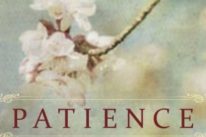
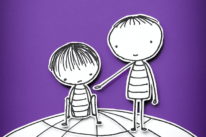
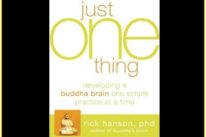



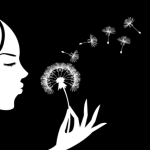




 Though I run this site, it is not mine. It's ours. It's not about me. It's about us. Your stories and your wisdom are just as meaningful as mine.
Though I run this site, it is not mine. It's ours. It's not about me. It's about us. Your stories and your wisdom are just as meaningful as mine.